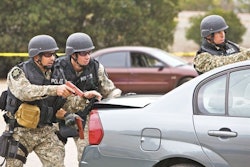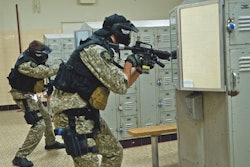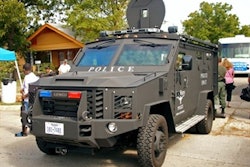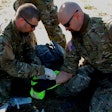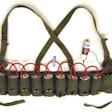Imagine yourself coming home from a fun-filled day of training, and you get a call about a man barricaded in his home. He has multiple weapons including a sub-machine gun, assault rifle, and sniper rifle. He has violated a restraining order, and knows he's going to jail.
As a member of the SWAT team at your agency, you feel your team is ready for this situation. On this day, you know this can get resolved in a professional SWAT manner. Then you hear the subject is your best friend—an officer at your police department and a fellow team member who has crashed in his life.
You've gone through many doors with this person through the years. Suddenly, you find yourself on the phone talking with the person you'd hoped would never be pinned in his home. All this person wants is to die in a blaze of glory. He may not want to hurt anyone, but simply has no other route in his life because he lived for the job, loved the job, and would die for the job.
If you think this is a false story, think again. This is a true account of what happened in Piscataway, N.J. in March. It could happen in your town. If you've not accounted for these types of situations, consider each of the following questions:
- How do you assist tactical members when they're dealing with emotional hardships outside of work?
- When your team is called out for tactical deployments such as high-risk warrant service or a possible barricaded subject, do you assume they're all ready to deploy at a moment's notice?
- During operational planning, do you gauge the looks of your people to see if they have a glazed stare, indicating they're somewhere else in their mind rather than engaged in the mission?
- Do you know your team members well enough to know about their domestic, financial, or emotional problems?
Leading a tactical team can be a tedious and mentally draining task. Tactical units are held to a higher standard. The training must be precision-based in all phases, so that in the real-time environment, the forgiving principles of mistakes can be held to a minimum.
When a tactical member, let alone one of your best operators in the game, suddenly has a life crash, make yourself available to that person. At call-outs, arrive early so you can take precautions such as limiting access to high-powered weapons to the person in need of crisis intervention. Try to put yourself in that person's position to understand what you would need to prevent a major communications disaster amongst team members.
Keep an open line of communication with team members, so they can turn to you while in emotional-crisis mode and not be punished for having feelings but rather given positive assistance in their time of need.
Here are five signs that you may have a troubled SWAT operator:
- If you learn that the person is experiencing personal turmoil because of a divorce or money issues.
- A usually outgoing person suddenly stays very quiet and keeps to himself.
- The person suddenly starts lashing out at others when they are usually professional in their daily work demeanor.
- The person constantly smiles and tells you everything is OK, even though they're getting into incidents at work or at home that causes higher administration to question their behavior.
- Inappropriate jokes about killing people or barricading himself in the house.
Officer Jose Medina is an active member of the Piscataway (N.J.) Police Department's SWAT team.






